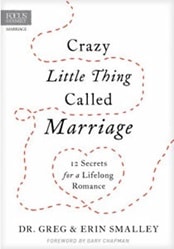Lifelong commitment also implies that you love your spouse and make a decision to stay married “until death do us part” as it says in traditional wedding vows. In other words, divorce is not an option in your mind. At some point a husband and wife need to “decide” to love – even when they don’t feel like it. The word “decide” comes from a root word meaning “to cut.” You cannot make a commitment without deciding to cut off other options that compete against what is most important.[1]
Burn the ships! This phrase refers to one of the most dramatic incidents in the history of the Spanish conquest of the New World. In 1519, conquistador Hernando Cortés landed in Mexico on the shores of the Yucatan intent on claiming the treasures of the Aztecs. Knowing that he and his men faced incredible odds, he changed the terms of the entire campaign by giving the order to “burn the ships.” With no way out and no fallback option, his men had no place to go except forward.[2]
Successful married couples “burn their ships” by taking the word “divorce” completely out of their vocabulary. It’s a simple matter of commitment. “Therefore what God has joined together, let no one separate” (Matthew 19:6). Remember, retreat is easy when you have the option.













“But Ruth said, “Do not urge me to leave you or to return from following you. For where you go I will go, and where you lodge I will lodge. Your people shall be my people, and your God my God. Where you die I will die, and there will I be buried. May the Lord do so to me and more also if anything but death parts me from you.”
Ruth 1:16-17
What does it mean when a person says, “I am committed to my marriage for life?”
It means, among other things, that marriage is created by God and meant to be honored by everyone (Hebrews 13:4). Healthy couples believe marriage is permanent and that divorce is not an option. They look forward to their future together and see their marriage as one of the most important parts of their lives. They love each other and invest in their relationship. In strong marriages, couples expect to face challenges together and are willing to do whatever it takes to make their marriage work. How does all this play out in everyday life? Let’s take a closer look.